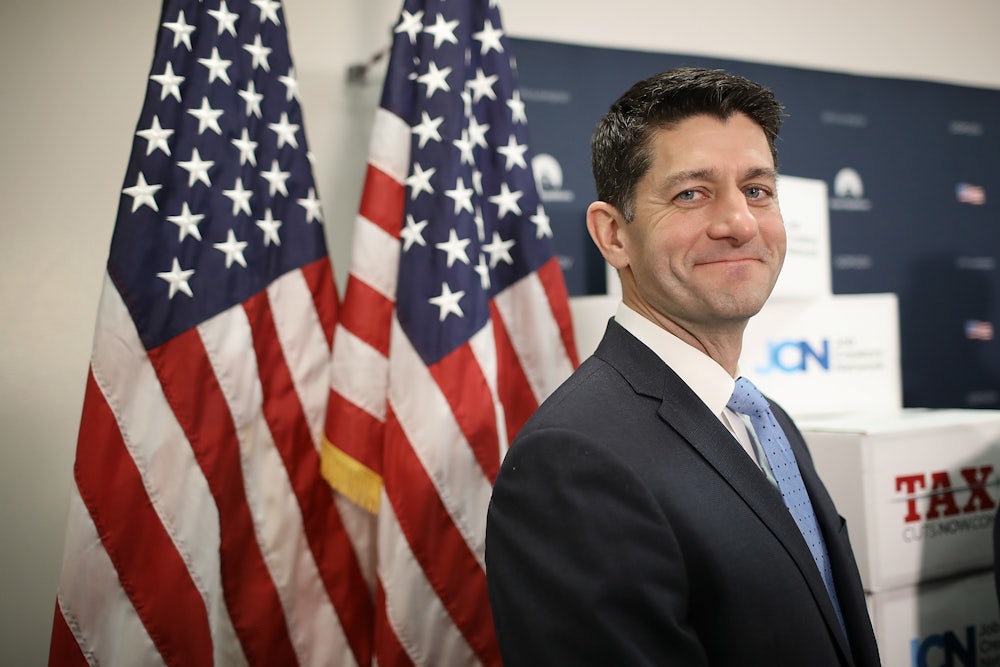On Wednesday, after months of speculation, Ryan made it official: He will retire from Congress at the end of the term. “This morning Speaker Ryan shared with his colleagues that this will be his last year as a member of the House,” aide Brendan Buck said in a statement. “He will serve out his full term, run through the tape, and then retire in January. After nearly twenty years in the House, the speaker is proud of all that has been accomplished and is ready to devote more of his time to being a husband and a father.”
The line being pushed by Ryan’s camp is that, with the passage of last year’s $1.5 trillion tax bill, the Wisconsin Republican has no worlds left to conquer. This is stretching the truth some, given Ryan’s long-held ambition to overhaul entitlement programs like Medicaid. But the deficit increase that will follow the tax cut—a giveaway to corporations and the wealthy—does make Ryan’s dream of a large-scale reduction of public benefits more likely.
This is ultimately about politics. Ryan has been speaker since the fall of 2015, a tenure that has been marked by the rise of Donald Trump and constant threats of civil war within his caucus. For the last two and a half years, Ryan has repeatedly bowed to pressure from the right of his party and has, with the notable exception of the immediate aftermath of the Access Hollywood tape, refused to speak out against the president, let alone act to restrain him. Pressed to respond to the president’s bad tweets—or the status of the Dreamers, whom he had pledged to protect—Ryan has punted.
This will be the legacy of Ryan’s speakership. On the one hand, a massive upward redistribution of wealth and a steady erosion of the social safety net. On the other, a refusal to do anything to stop Trump.
